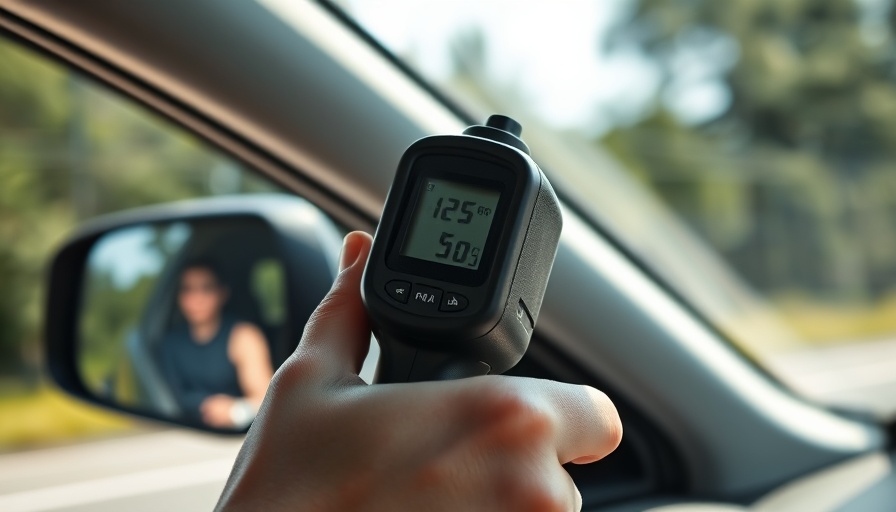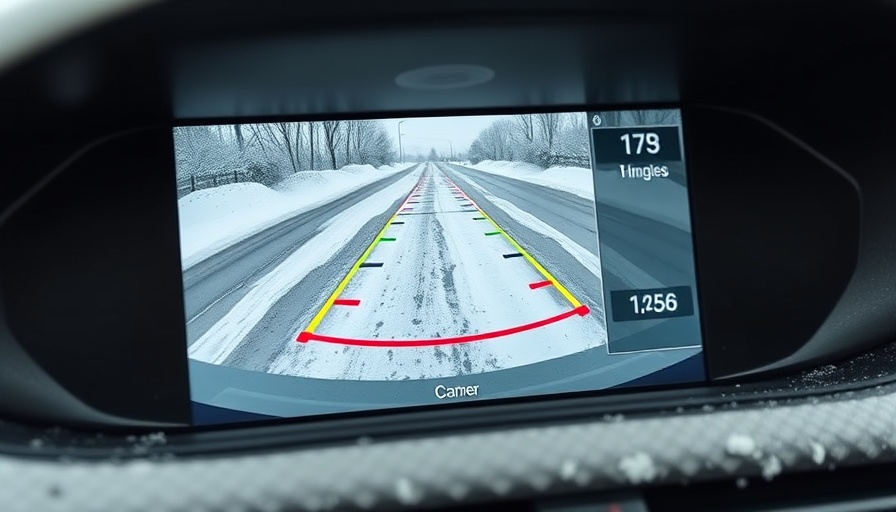
Rethinking Speeding: Virginia's Innovative Approach
Speeding can happen to anyone. Whether it's a moment of distraction, running late, or just feeling the adrenaline, most drivers have pushed the limits at some point. However, as the dangers of speeding become increasingly apparent, states like Virginia are reevaluating how they approach the issue of repeat offenders. With the new law, HB2096: Intelligent Speed Assistance Program, Virginia seeks to introduce an innovative solution designed to not only penalize speeders but also reform their behavior on the road.
Understanding the New Law: What is HB2096?
Signed into law and set to take effect on July 1, 2026, HB2096 offers a proactive approach to managing speeders. If caught driving over 100 miles per hour, instead of facing an automatic license suspension, drivers will have the option to enroll in a program that requires them to install an intelligent speed assistance system. This innovative technology is designed to help modify driving behavior by limiting how fast drivers can accelerate, promoting safer driving habits.
The Mechanics of Intelligent Speed Assistance
But how do speed limiters actually work? Intelligent speed assistance systems utilize sensors that monitor the vehicle's speed and communicate with the engine control unit (ECU). When a preset speed limit is reached, the system intervenes by restricting airflow and fuel, effectively preventing the vehicle from exceeding the set speed. This can deter habitual speeding through real-time management of vehicle performance, making it harder to engage in reckless driving.
Potential Advantages of the Program
The ultimate goal of this program is to increase road safety and reduce accidents caused by excessive speeding. According to safety experts, habitual speeders can significantly increase the risk not only for themselves but also for others on the road. By enforcing speed limiters, Virginia hopes to lower the number of fatalities and serious injuries related to high-speed driving.
Consequences of Tampering with Safety Features
It's worth noting, however, that tampering with these limiters is illegal and classified as a Class 1 misdemeanor under the new law. This means any attempt to bypass the speed limiter is taken seriously, leading to even greater legal ramifications for offenders. This aspect of the law makes it clear that the intention is not just to punish but also to encourage compliance and promote safety.
Is Virginia Setting a New Precedent?
Virginia's approach might spur other states to implement similar traffic safety measures. As speeding poses significant risks, especially in densely populated areas or near schools and residential neighborhoods, adopting tech-based deterrents could evolve into an important trend in the U.S.
In conclusion, Virginia's innovative stance on managing repeat speeders could potentially transform how states deal with reckless driving. By blending technology with legal regulation, the state not only aims to penalize but also to rehabilitate driving behavior, setting a precedent for future traffic safety measures across the country. Homeowners and community members alike should keep an eye on these developments as they could impact local roads and driving culture significantly.
Join the conversation! Are you in favor of using technology to manage speeding on our roads? Let your voice be heard and consider talking to your local representatives about supporting similar initiatives in your area.
 Add Row
Add Row  Add
Add 




 Add Row
Add Row  Add
Add 

Write A Comment